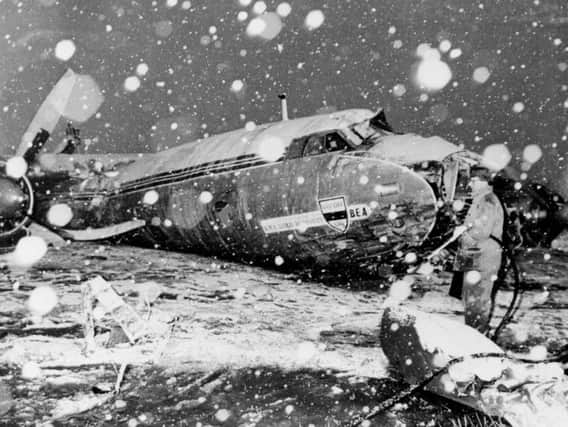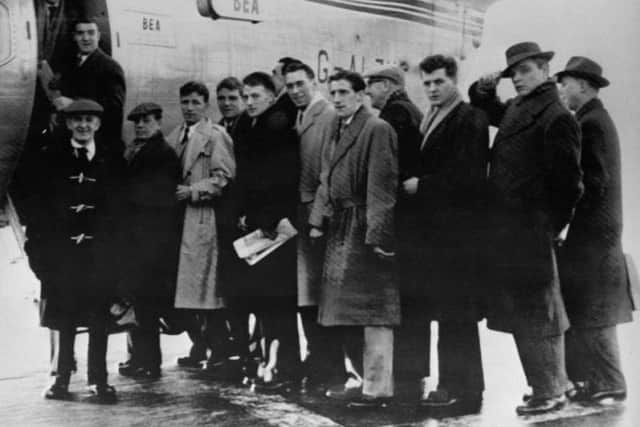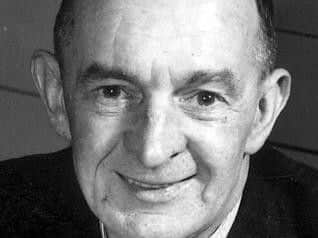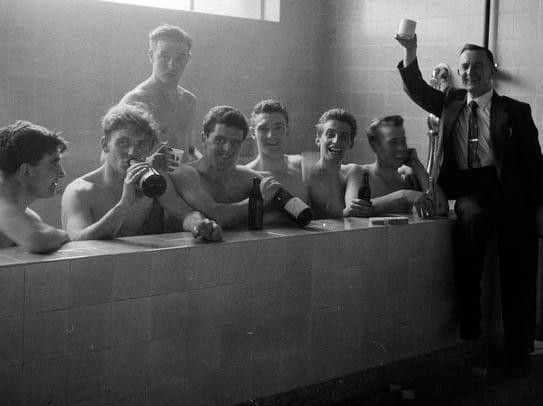Wigan-born Man United club secretary was one of tragic Munich crash victims


At Munich-Riem Airport, the plane carrying the Manchester United team, staff and journalists, crashed on the third attempt at take off.
The famous Busby Babes were returning from their European Cup tie against Red Star Belgrade when tragedy struck. According to the song Flowers of Manchester, “there was slush upon the runway, and the aircraft never rose."
Advertisement
Hide AdAdvertisement
Hide AdOut of the 44 passengers and crew on board, 23 were killed when the plane crashed into a house at the end of the runway. Eight of the fatalities were players from the young United team.


But the Babes may not have ever come to fruition, had it not been for the work of one of the crash victims - United Club Secretary Walter Crickmer, who was born right here in Wigan.
Born in 1900, little is actually known about Crickmer’s life in the town. But one thing that isn’t ambiguous is the hugely significant part he played in shaping the history of Manchester United.
Today, on the 60th anniversary of the disaster, the Post takes a look at some of his contributions to the club he served for over three decades.
Advertisement
Hide AdAdvertisement
Hide AdCrickmer joined the Old Trafford set-up in 1926, when the Reds were, well, not actually red.


The club’s home strip at the time of Crickmer joining was in fact white with a red chevron around the neck.
United were also fighting to stay in the First Division, languishing in the bottom half of the table after winning promotion in 1925.
It was not long before he assumed managerial responsibility for the first time, taking the helm of the club between April 1931 and June 1932 after
Herbert Bamlett was sacked following relegation.


Advertisement
Hide AdAdvertisement
Hide AdHe managed the team to a 12th place finish in the Second Division, allaying fears of a second successive relegation, which would’ve put United in the Third Division for the only time in their history.
It was during this period that Crickmer was famously instrumental in helping the club survive the threat of bankruptcy.
In December 1931, Crickmer met with businessman James W Gibson, in a plea to help keep the struggling club afloat. He persuaded Gibson to invest £2,000 into United (£118,000 today).
Gibson would later make further investments and subsequently became the club’s owner until 1951.


Advertisement
Hide AdAdvertisement
Hide AdCrickmer then assumed the reigns of the first team in 1937, when manager Scott Duncan resigned.
It was in 1938 that Crickmer was influential in founding the club’s first youth team, MUJAC (Manchester United Junior Athletic Club). The system would go on to produce no less than six members of United’s 1948 FA Cup winning team including team captain Johnny Carey.
Crickmer would then continue to steer the club through the Second World War until Sir Matt Busby’s appointment in 1945. Busby, one of United’s greatest ever managers, utilised the youth system implemented by Crickmer to build his dynamic young team which would go on to become consecutive league champions in 1956 and 1957.
Their heroics would earn them a spot in the newly created European Cup, reaching the semi-finals in their maiden season. They were drawn against Red Star Belgrade in the quarter-finals in 1958, and Crickmer travelled with the team for the second leg of the tie, having won 2-1 at Old Trafford.
Advertisement
Hide AdAdvertisement
Hide AdThe club drew 3-3 in Belgrade, winning 5-4 on aggregate, and had stopped off in Munich for their plane to refuel en route back to Manchester. The twin-engine jet aborted take off twice before the third, fateful attempt to get off the ground.
Crickmer had served United for 32 years when he was killed in the disaster. He was 58 years old, and was buried in Stretford Cemetery. He was survived by wife Nellie, who died nine years later in 1967, and was buried alongside him. They had one daughter, Beryl, who was born in 1921.